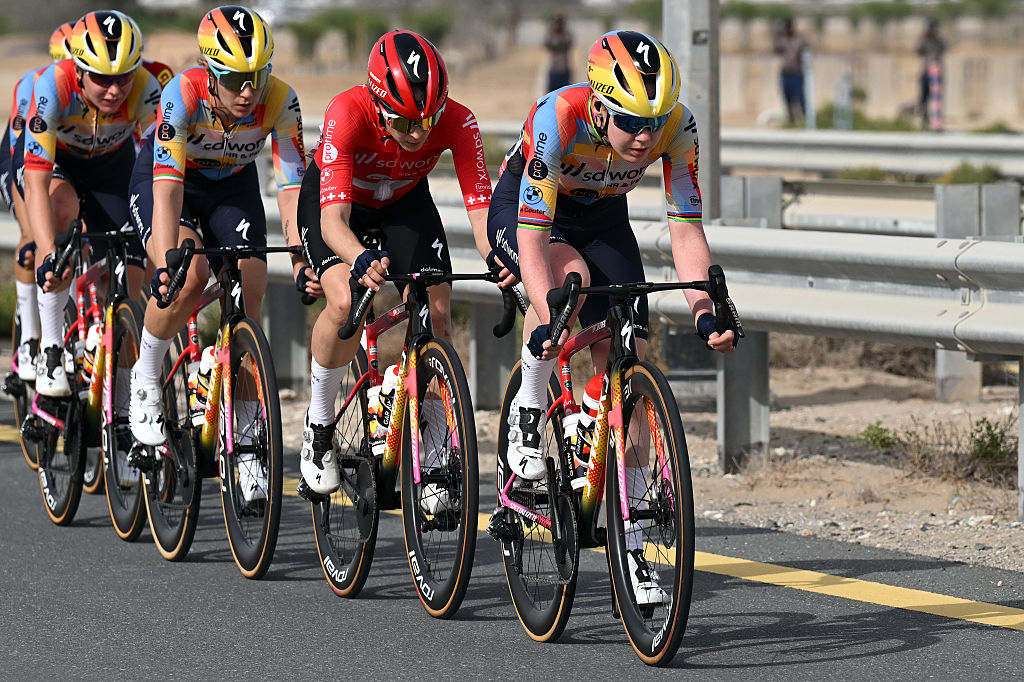Alberto Contador: I have no regrets
Recently retired Spaniard says he wouldn't change a thing of his 15-year career
The latest race content, interviews, features, reviews and expert buying guides, direct to your inbox!
You are now subscribed
Your newsletter sign-up was successful
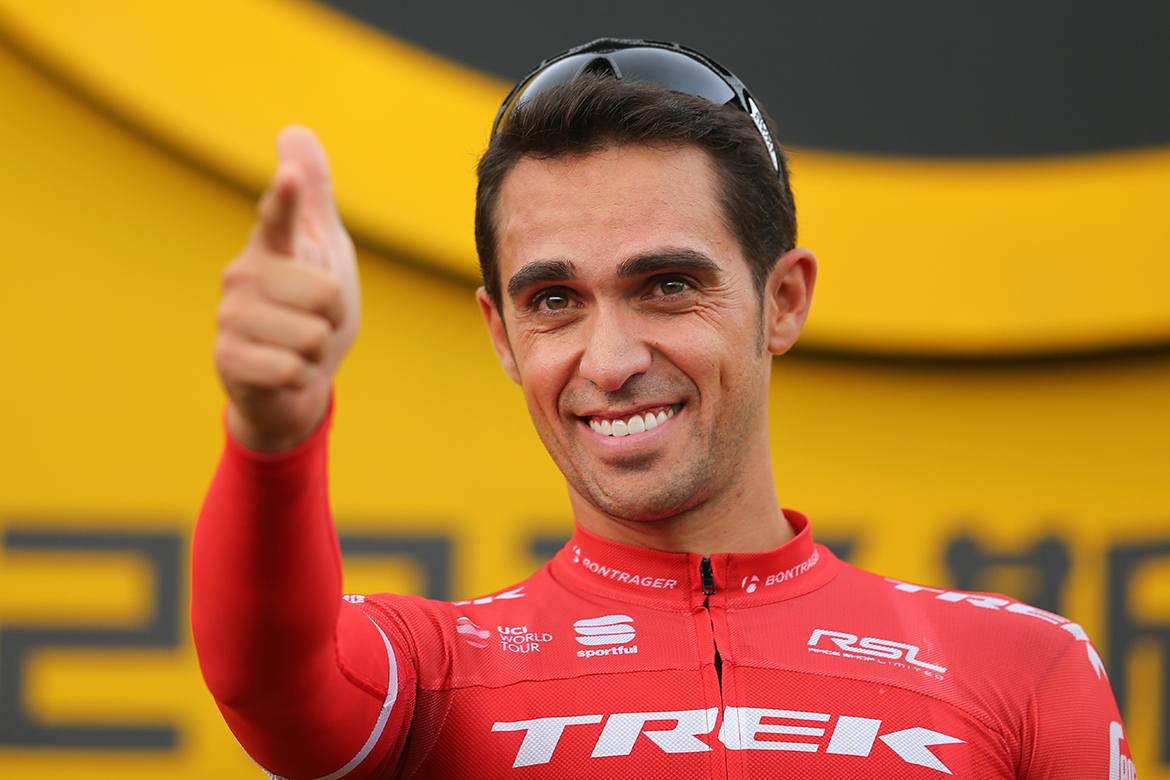
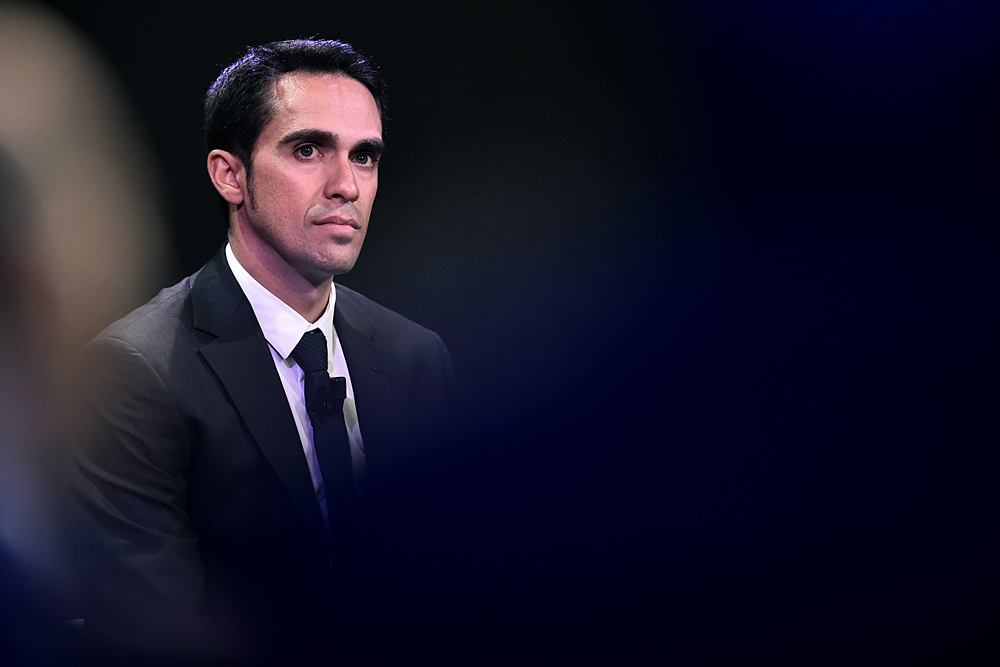
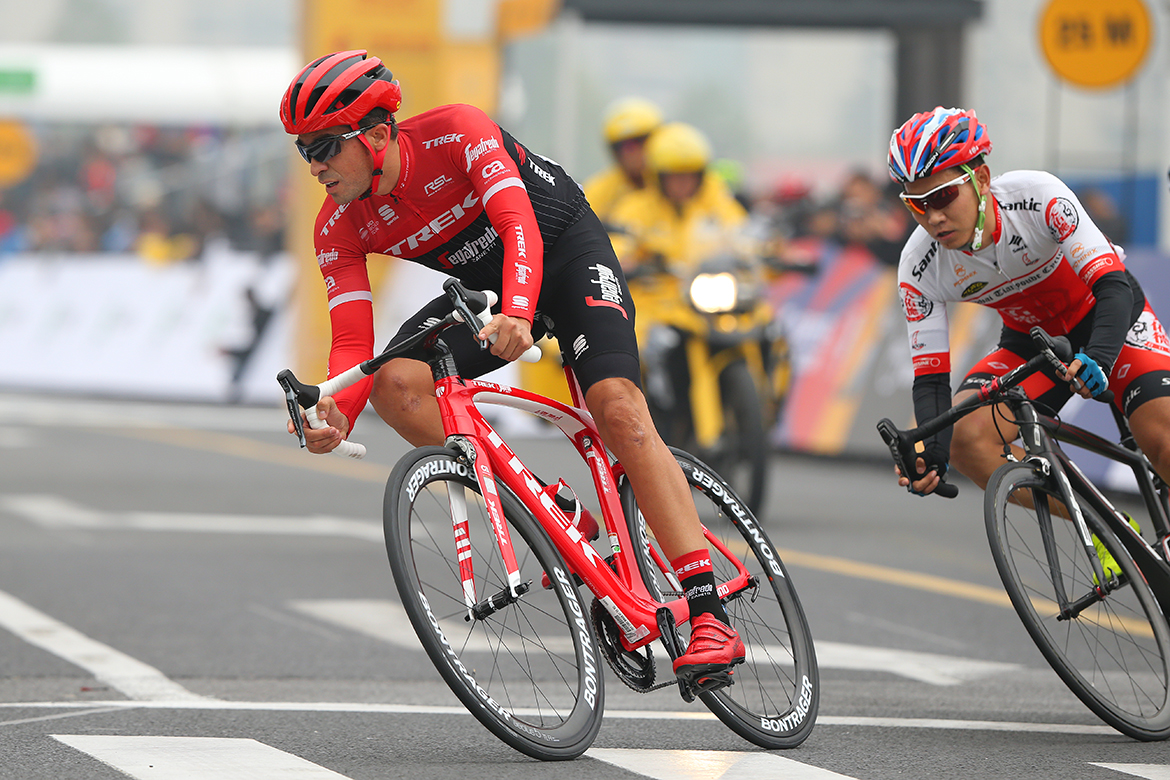
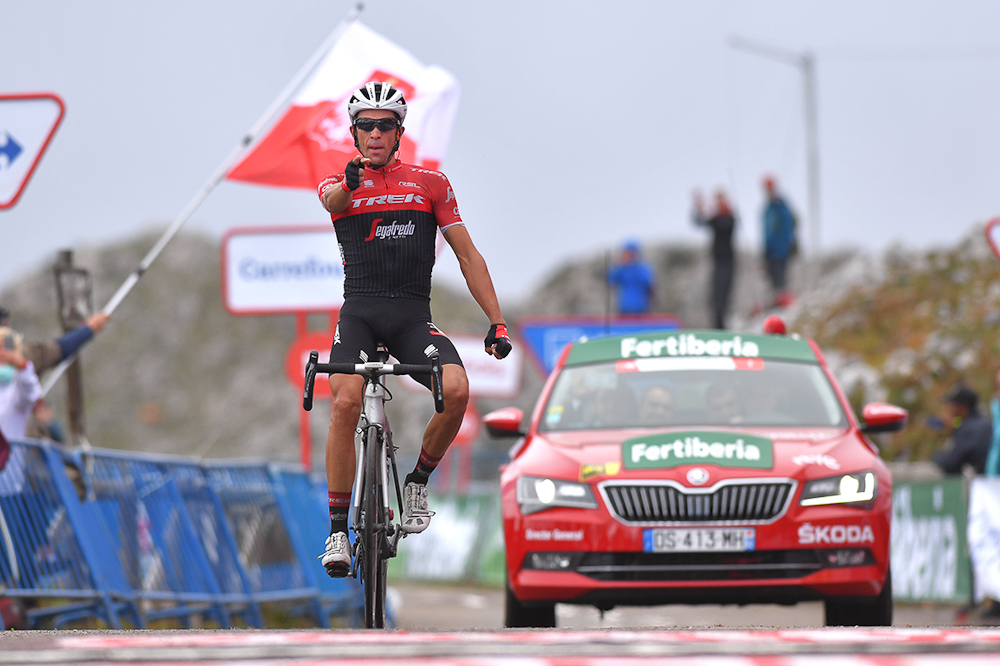
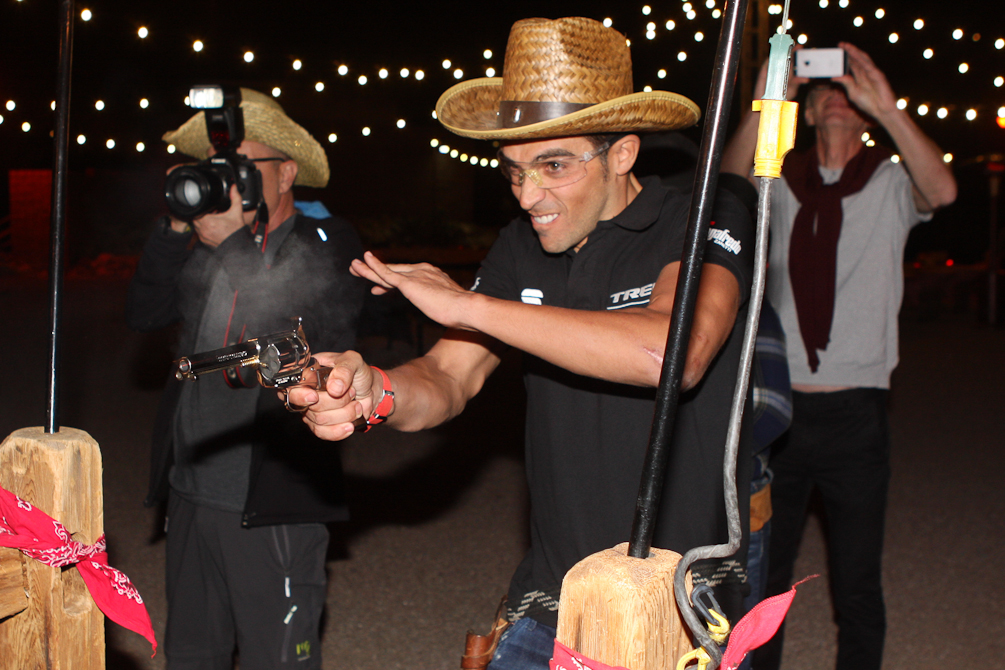
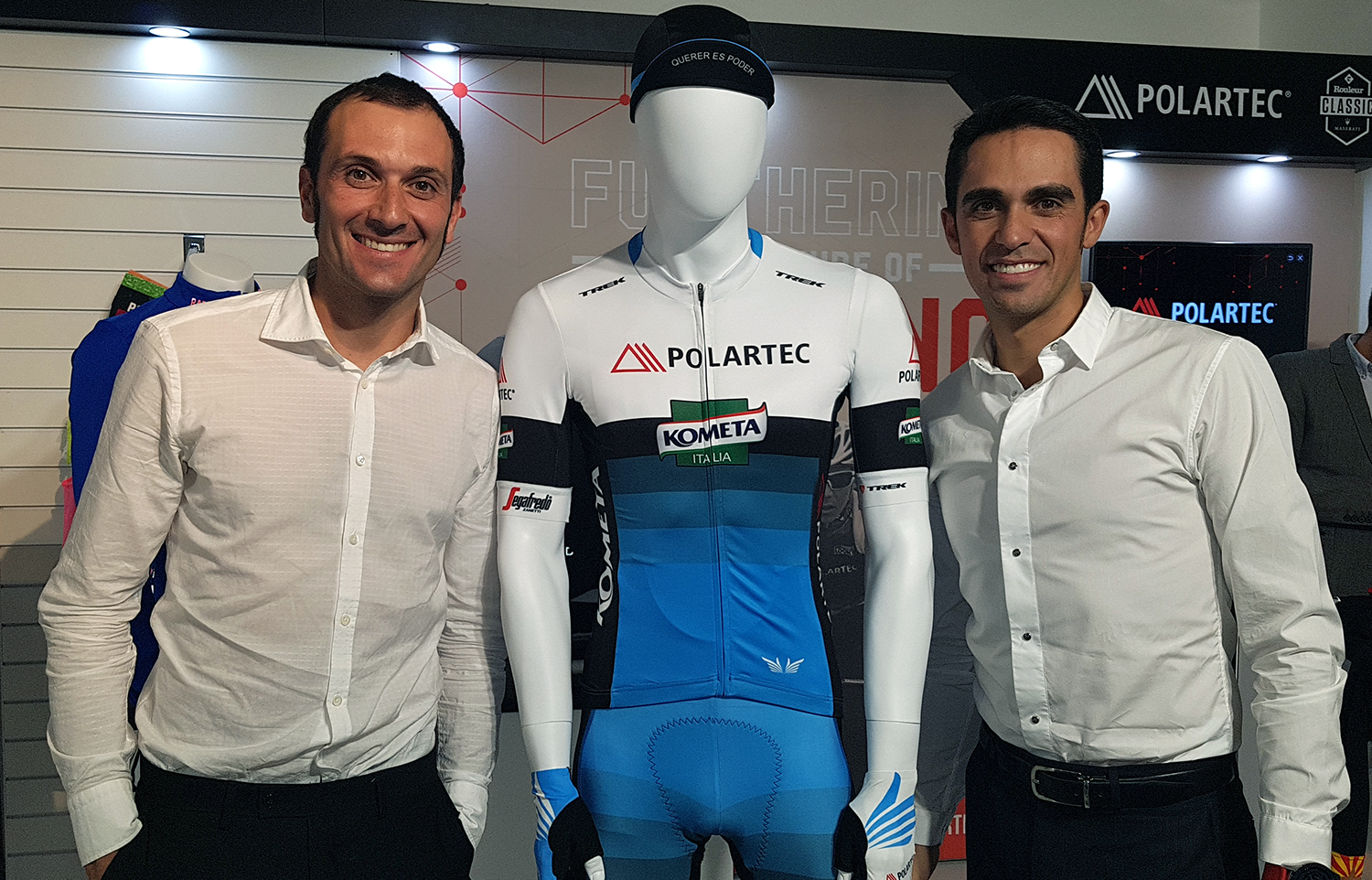
After a career that spanned 15 years, including seven Grand Tour wins and a positive test result for clenbuterol that led to a six-month suspension, Alberto Contador says he has no regrets.
Contador proposes salary caps for pro cycling
Alberto Contador: A career retrospective - Gallery
Contador: Being stripped of 2010 Tour and 2011 Giro was a 'tremendous injustice'
Alberto Contador: The real star of the Vuelta
Alberto Contador and Polartec-Kometa cowboy up in Arizona - Gallery
Answering questions during a wide-ranging press conference with a small group of reporters earlier this month in Arizona, Contador said he is satisfied with his career and proud of the fact that he always gave 100 percent in every race he entered.
"No. I wouldn't change anything," he said when asked if he had any regrets. "Always in my career I gave 100 percent.
"In this 15-year professional career, I gave 100 percent to the bike," he said. "I think if you have a professional licence, it's not necessarily that you are a professional. If you are professional you need to give 100 percent. It doesn't matter if you have a three-year contract or a one-year contract, or if you are in a small race or a big race. In all of the races I was in, I gave 100 percent, and I'm happy because of this."
Contador ended his career with two wins in the Tour de France (2007 and 2009) and the Giro d'Italia (2008 and 2015), and he won the Vuelta a Espana three times (2008, 2012 and 2014). But after a positive test for clenbuterol, the UCI suspended him for six months in 2012 and stripped him of his 2010 Tour de France victory and all of his results in 2011, including his overall win at the Giro d'Italia.
Contador quickly bounced back after his suspension, winning the Vuelta in 2012 and 2014 and adding another Giro d'Italia title in 2015, but he never again reached the Tour de France overall podium.
Early success and then a scare
Contador scored his first professional win in 2003, taking out the individual time trial at the Tour of Poland as a fresh 20-year-old riding for Once-Eroski.
The latest race content, interviews, features, reviews and expert buying guides, direct to your inbox!
Tragedy struck the following season, however, when he suffered a brain stroke during stage 1 at the Vuelta a Asturias, crashing off his bike during the stage and convulsing on the side of the road as medical staff worked to stabilise him. He was diagnosed with cerebral cavernoma and underwent risky surgery to correct the problem, eventually returning to racing the following year with Liberty Seguros.
Contador wasted little time establishing his place in the peloton upon his return, winning the Queen stage in Willunga Hill during his first race back at the Tour Down Under - a day he said he still counts as his greatest win.
"Angliru was incredible," he said, referencing his win in the final mountain stage of this year's Vuelta in front of throngs of screaming fans. "But before cycling is life. Before the cyclist is the person. The victory in 2005 at the Tour Down Under was more for the life than the cycling.
"It was emotional because I could come back again to the cycling, to my passion, and win," he said. "For sure it is more popular, the victory at the Vuelta on the Angliru, for example, or the Tour de France or the Giro or the Vuelta, but for me this win is more special."
That being said, his win on the last mountain stage of the 2017 Vuelta a Espana, his final race, was obviously also very special.
Contador had gone on the attack over nearly a dozen stages in the race without grabbing victory, so his win on Alto de L'Angliru provided a fitting closure for his final race and his long career. he clearly relished the experience while recalling the last minutes of the race.
"That day on the last 3km of the Angliru, I gave it 100 percent," he said. "I could not go out of the saddle because of the rain beforehand and I'd lose traction on the back wheel when I went out of the saddle. This was difficult, and in some moments I went so low I could only see the legs of the people.
"The guys from Sky came for me. In one moment I looked back in a corner that they were coming for me. I wanted to enjoy the moment because it was the last time I would be in that situation," he said. "I enjoyed all day the climb. It was true that I was thinking while I was there that I would win. Of course, in the final they got close to me, but I had confidence to keep going. When you look at the TV and see the 27 percent, it was incredible. It was special."
Putting the 'Grand' back in Grand Tours
Watching Contador fight off the Team Sky riders and Chris Froome on the Vuelta's final stage provided plenty of entertainment for fans, and Tom Dumoulin's battle with Nairo Quintana at the Giro d'Italia came down to the final day, whereas the Tour de France has lost some of its lustre in the wake of Froome's and Team Sky's recent domination.
When asked, Contador offered up several ideas to make Grand Tour racing more exciting. He again endorsed the concept of some kind of salary cap, pointing to Team Sky's budgetary advantage as a roadblock to parity.
"They have a very good system of work. This is true," he said of Team Sky. "But the big difference is with the budget. They have more than two times the average of the WorldTour teams. Maybe you put a limit on the money for salary, maybe it would be harder to buy all the good pro riders out of the group.
"The great thing about cycling is that you can't control everything," he said. "But for sure with Team Sky it is more difficult because they always have a very, very strong team. Sometimes the teammates are stronger than the leader."
Contador also revisited the idea of banning power metres in races.
"In my opinion the power meters don't help," he said. "I believe 100 percent in the power meter for training, for sure. But in the race, in my opinion, this causes limitations in attacking sometimes.
"People go in a group of 10-12 riders, and go to maybe 400 watts," he said. "Maybe in one moment he feels good, but he looks and maybe he's 400 watts, and he thinks he has to stay on the wheels because if he attacks he is dropped in 2km."
Looking at this year's Tour de France route, Contador gave a thumbs up to the short-but-hilly 65km stage 17 that finishes atop Col de Portet.
"Normally it would be with a stage that is more easy, people will attack because you can blow up a very strong team, because for 65km you can fight. You can fight more," he said.
"If you have 200km with two very long climbs and the final, it is very difficult to attack from the beginning of the stage. With longer stages some people maybe can go and give 100 percent for the first part of the race and another look only to control for the last kilometres. With 65km you can play from the first moment. This year will be the first year. For me, I would have preferred they started with this system two or three years ago."
'I won many days during this Vuelta'
Contador also offered some advice for young riders coming into the sport. His Alberto Contador Foundation operates a cycling school for young children, a junior team, a U23 team and now the inuagural Polartec-Kometa Continental team. He emphasized the commitment required to be a professional.
"Finally, and this is most important: In the time that you are professional, take the maximum that you can. Because after you will have the rest of your life to do the other things that you cannot do during the years you are professional. And also, you will enjoy these things more if you give 110 percent during the professional part of your life."
Asked about his legacy, Contador said he was proudest of his attacking style.
"For me, I am most proud when people come to me and say they enjoyed sitting in front of the TV and watching me attack and attack and attack," he said.
"At the Vuelta, I won only one stage but maybe it was a perfect stage. And I think I 'won' many days during this Vuelta, because every day for me was an incredible day because of the support of the people at the start, during the stage and after the stage on the bus, in the hotel."
Growing up in Missoula, Montana, Pat competed in his first bike race in 1985 at Flathead Lake. He studied English and journalism at the University of Oregon and has covered North American cycling extensively since 2009, as well as racing and teams in Europe and South America. Pat currently lives in the US outside of Portland, Oregon, with his imaginary dog Rusty.
